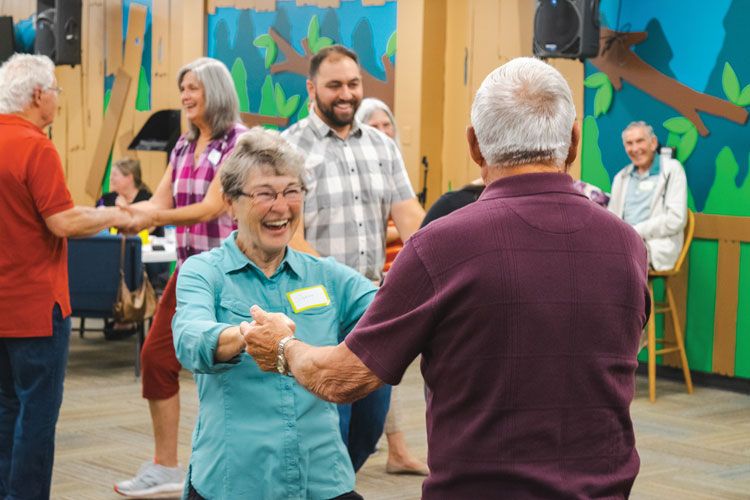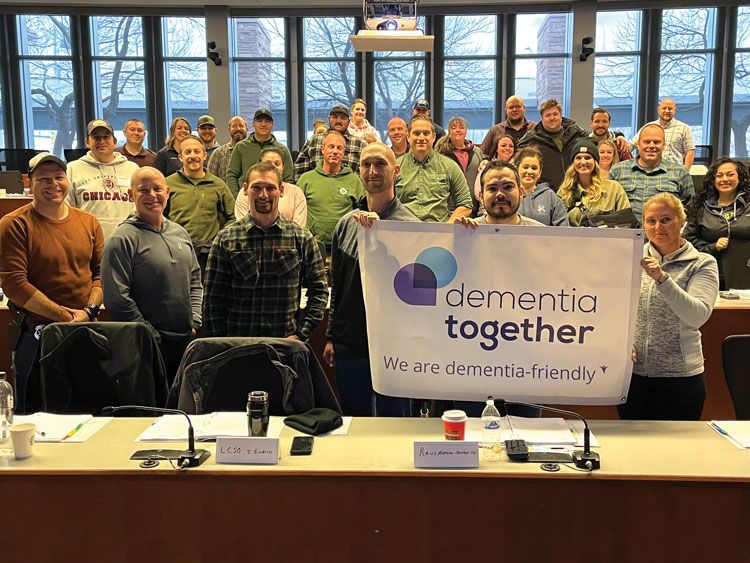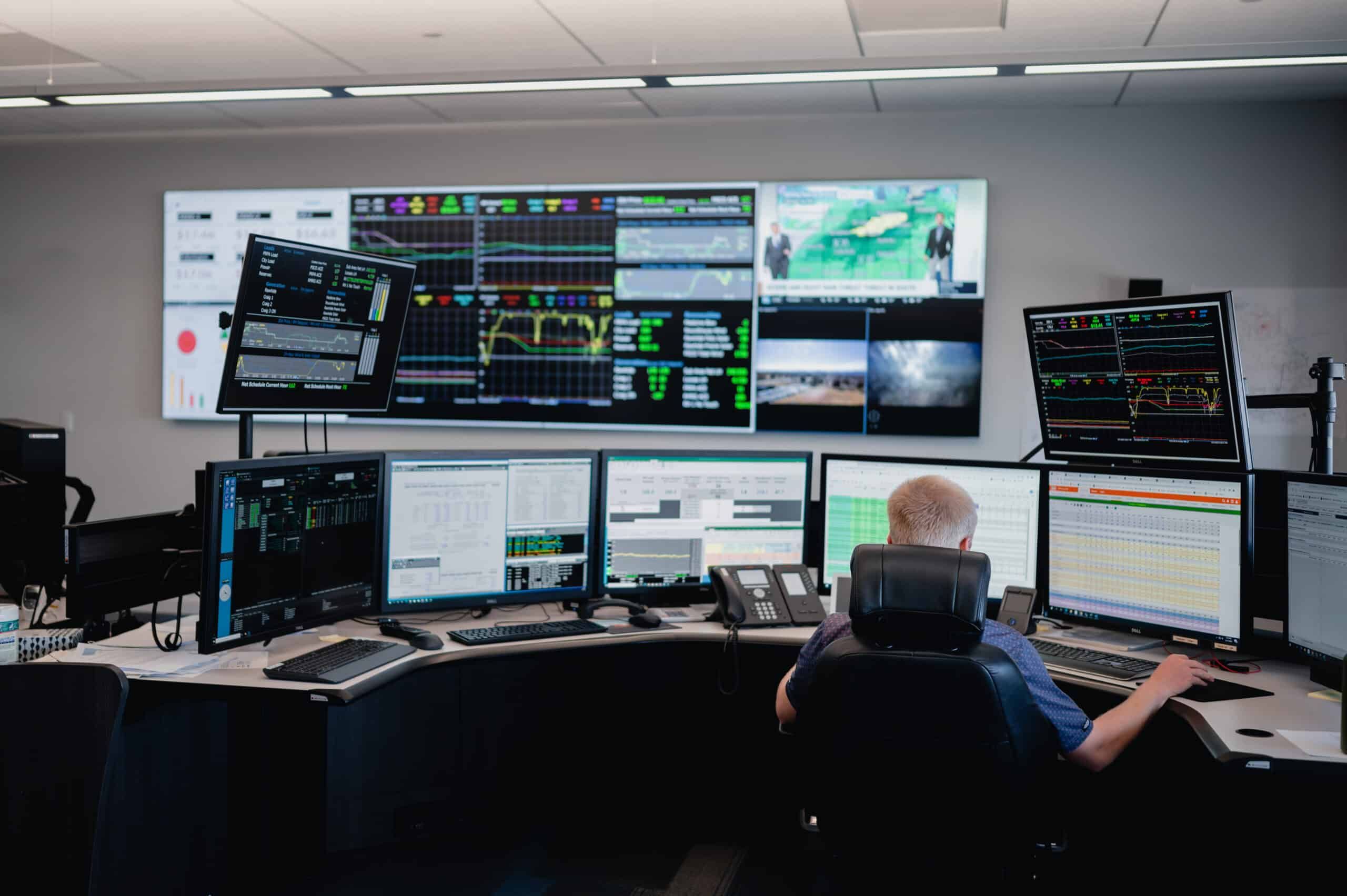Agency seeks to teach about dementia

WINDSOR — Cyndy Hunt Luzinski at Dementia Together has a special mental photo album she likes to share with law enforcement and the larger community.
Luzinski’s SPECAL Photograph Album explains in simple terms what it feels like to experience dementia without needing to understand what happens in the brain and the medical terminology involved. SPECAL enables anyone to effectively respond to and adjust interactions to accommodate for the disability of dementia.
“We teach the ‘Contented Dementia’ approach (the SPECAL method) as a way to help people understand and positively manage the condition of dementia without needing to know medical diagnoses or any medical terminology,” said Luzinski, RN, founder and executive director of Dementia Together. “It treats dementia as a simple disability where facts are no longer stored efficiently, while feelings continue to store the same way as usual.”
SPONSORED CONTENT
How market participation facilitates the region’s renewable energy use
Platte River Power Authority joined an organized energy market in 2023 and will join another in 2026. Read more about the how these efforts benefit the communities of Estes Park, Fort Collins, Longmont, and Loveland.
Somebody with dementia often loses the context of what’s happening and why. For instance, if someone asks if they want coffee while sitting at a table, they may not know if they already had it or even want to. Or they may feel like they like or don’t like cops or feel scared for some reason but don’t understand the commotion and the lights and sirens.
“When something happens, we unconsciously store facts and feelings. And anytime something in the future happens, we go back to the photo album,” said Deputy Chris Smith, ADA coordinator with the Larimer County Sheriff’s Department, trained in the SPECAL method. “(People with dementia) get confused and work themselves up in a big circle. And it starts all over again.”
Dementia Together, a nonprofit founded in Windsor in 2017 that serves Larimer and Weld counties, focuses on three pillars of education, enrichment and hope. The nonprofit provides no-cost, dementia-friendly education for families, professionals and businesses with the aim of promoting lifelong wellbeing for people living with dementia and hope for those providing care. The nonprofit also offers enrichment opportunities for people living with dementia and their care partners.
“Dementia Together is not working on a cure. We’re working on care in the meantime,” Luzinski said. “Until cures are found, we want to help people care well for anybody who is experiencing dementia. … Our vision is that living well with dementia is the expectation, not the exception.”
SPECAL is a dementia care model from the UK that is family-driven and person-centered.
“It’s so simple that anybody can understand and apply it. That’s why I like it,” Luzinski said. “It works regardless of the cause of the dementia symptoms.”
The evidenced-based model gives positive strategies for managing dementia by starting with three golden rules. The first is to avoid asking direct questions, because facts might not have stored and questions may cause anxiety or a feeling of being put on the spot, unable to give an answer.
“There are ways to provide a choice and to find out the information you need without asking direct questions,” Luzinski said.
Second, listen to the expert, because the person with dementia knows how to cope when facts aren’t storing anymore. And third, don’t contradict or argue with the facts the person with dementia is using from their past to give context for and help them cope with what’s happening in the present.
“We give responses that don’t disturb the sense that somebody with dementia is making based on the amount of facts that are storing for them,” Luzinski said.
The SPECAL model takes a trauma-informed approach with the goal of preventing new trauma from entering the mental photo album of a person with dementia and causing them to feel re-traumatized from old traumas — instead responses can come from a feeling level.
“It works for anyone who is stressed, honestly,” Luzinski said.
Luzinski provides training on SPECAL with care partners, professionals working in the senior and health care fields, businesses and law enforcement agencies. She provides quarterly training for the Crisis Intervention Team consisting of Larimer, Boulder and Weld county law enforcement, and has provided training with the Larimer County Sheriff’s Office and the Fort Collins Police Department. She works with Smith to train first responders, law enforcement officers and detention facility staff.
“The SPECAL method explains the why of somebody’s behavior, and if you can explain and understand the why, it’s easier to interact with them … and achieve a more positive outcome,” Smith said.
Smith aims to have all deputies and some of the staff at the Sheriff’s Office trained on SPECAL through in-service training. One training has been given so far to help officers understand how to work with a person living with dementia when making an arrest or taking them into custody — such arrests represent a small percentage of the caseload.
During an arrest, law enforcement might change how they ask questions, use specific phrases and join the person with dementia’s reality, such as if the year has “changed,” Smith said. Or if an inmate has dementia, the deputies may have to repeat explanations multiple times, such as “we’re going to dinner but first stopping for a shower,” he said.
“With dementia, you can’t change their reality,” Smith said. “You don’t argue with them or correct them … which on the surface seems cruel. It’s their reality, so it’s actually humane to join their reality and not change their mind or opinion.”
So far, the Sheriff’s Office has handled two cases where individuals with dementia were taken into custody, both domestic violence-related, he said.
“Colorado law doesn’t make exceptions for mental health, cognitive ability or dementia for an arrest to be made,” Smith said. “If they commit a crime, they get arrested and go to jail. … I make sure jail’s not any worse because of a disability, but it’s not going to be any easier.”
Law enforcement also may contact Dementia Together to provide guidance on the best way to respond to a person with dementia and resources that could be offered to the family.
“We’re fortunate in Northern Colorado, because most of our law enforcement agencies want to respond effectively to people living with dementia,” Luzinski said.
In 2022, Dementia Together provided services and resources for 2,150 individuals and a total of 8,300 services. The nonprofit provided 775 sessions or gatherings, including classes and workshops for care partners, support groups, and family consults, as well as social gatherings and Memory Cafes for those living with dementia and their care partners. Memory Cafes are social gatherings in person and on Zoom focused on playing games, singing songs and eating snacks around a theme.
Dementia Together is supported by private donations, corporate sponsorships, community partnerships and grant funding. The nonprofit is seeking funding to hire additional staff — currently there are five — and train them in SPECAL and to expand program offerings.
“The need for the education and enrichment program is growing. … We have new people contacting us every single week needing our education, our resources or support, and connection,” Luzinski said. “Because of that, we are trying to keep up with the need.”
Luzinski also wants to train more SPECAL practitioners to be able to spread the method in the United States and elsewhere. Dementia Together is the only agency teaching the method in North America.
“It can’t stay with us. We need to scale and replicate it,” Luzinski said.


